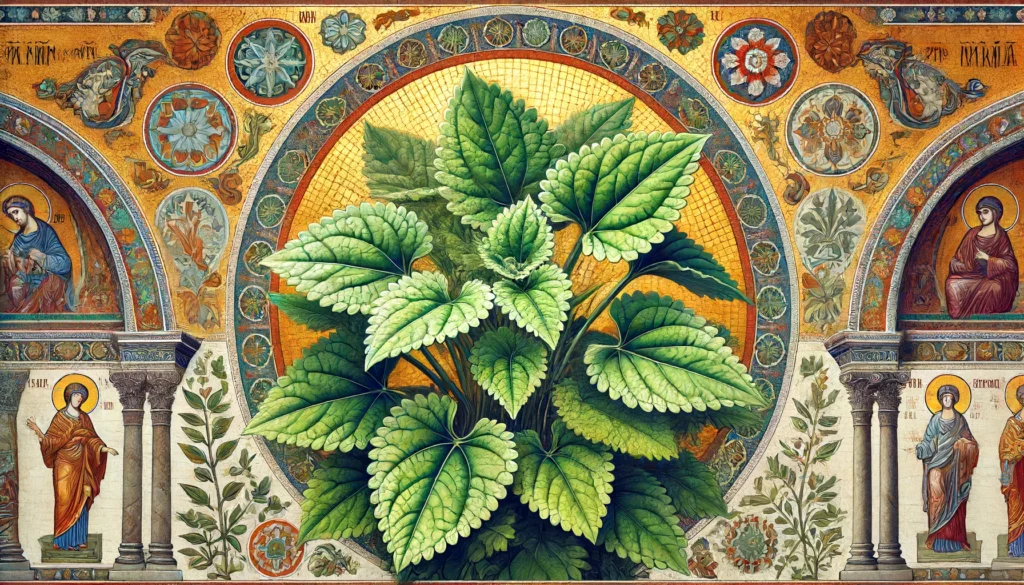

Home » Cat Plants » Is Your Cat at Risk from the Bread and Butter Plant?

The Coleus amboinicus, also known as Indian borage, country borage, or Mexican mint, is a perennial herb native to parts of Africa, the Arabian Peninsula, and India.
It is widely cultivated in tropical regions around the world for its ornamental, culinary, and medicinal uses. However, this plant contains essential oils that are toxic to cats. Toxins include Phenols, Terpenes, Ketones, Tannins, Saponins, Alkaloids, Gastrointestinal irritants.
Ingestion may cause mild gastrointestinal upset, but is generally not life-threatening.
Ingestion can result in mild symptoms like vomiting, diarrhea, or drooling. Rarely fatal but may require veterinary care.
Eating these plants can lead to more pronounced symptoms like abdominal pain, lethargy, or difficulty breathing. Veterinary intervention may be necessary.
Ingesting even small amounts can cause severe symptoms like organ damage, seizures, or cardiac failure without rapid treatment.
All parts of these plants are extremely poisonous to cats and can quickly lead to death, even with immediate veterinary care.
** Please note: Please note that toxicity level can vary based on the amount ingested and the specific cat. It's always best to keep these plants completely inaccessible to cats and seek immediate veterinary care or call the poison hotline if you suspect your cat has ingested any part of a toxic plant.
If your cat has eaten or brushed against Coleus amboinicus, watch for these signs of toxicity:
Suspect Coleus amboinicus poisoning if your cat shows the above symptoms and had access to this plant. Your vet will likely follow these steps to diagnose toxicity from Indian borage:
Treatment may include inducing vomiting, giving activated charcoal, IV fluids, anti-vomiting medications, and supportive care. Prognosis is good with prompt treatment before severe symptoms develop.

A: Yes, cats can be allergic to Bread and Butter Plant. Symptoms of an allergic reaction may include itching, sneezing, and skin irritation.
A: Yes, Bread and Butter Plant is toxic to cats. Ingesting any part of this plant can cause symptoms such as vomiting, diarrhea, and drooling.
A: Symptoms of Bread and Butter Plant poisoning in cats include vomiting, diarrhea, excessive drooling, and abdominal pain. Immediate veterinary care is recommended if ingestion is suspected.
A: To prevent contact, ensure that Bread and Butter Plant is not present in your home or garden. Keep your cat indoors or monitor outdoor activities closely to avoid exposure.
A: If your cat ingests Bread and Butter Plant, contact your veterinarian immediately. Do not induce vomiting unless instructed by a veterinary professional. Immediate medical attention is necessary.
A: Bread and Butter Plant is more commonly found in wild areas rather than home gardens. However, if you do have this plant in your vicinity, it is important to ensure it is kept out of reach of cats to prevent accidental ingestion.
Coleus amboinicus is native to parts of Africa, India, and the Arabian Peninsula. It was introduced to Europe and then the Americas, earning names like Spanish thyme and Mexican mint, although it is not related to those plants.
Many cultivars are grown as ornamental plants for their colorful leaves. The plant has a long history of use in traditional medicine in India and Southeast Asia to treat various ailments.
Please note: The information shared in this post is for informational purposes only and should not be considered as veterinary medical advice.
🐾 A hilarious or heart-melting cat video
🐾 Our latest paws-on review of a cool cat toy